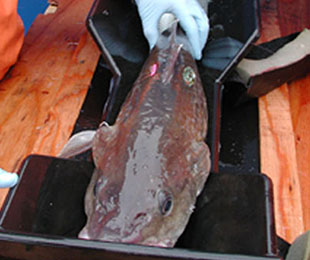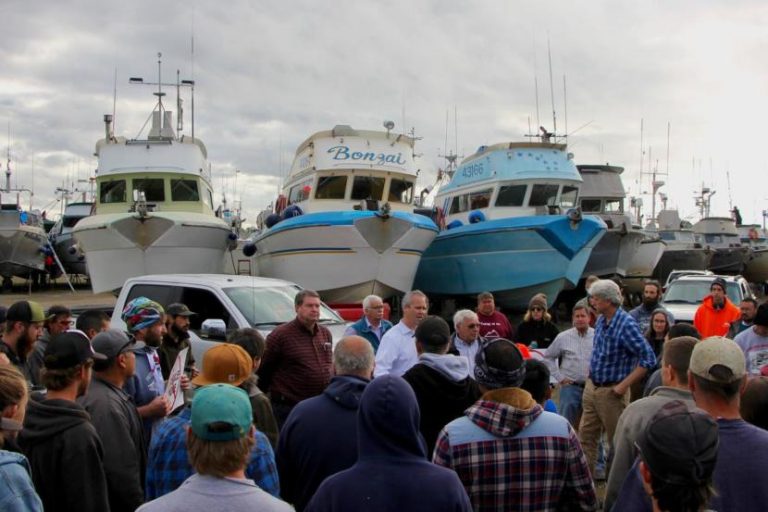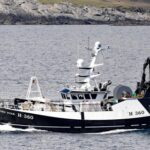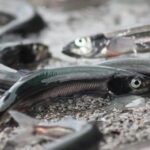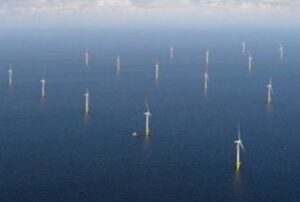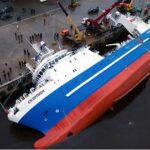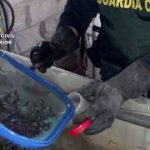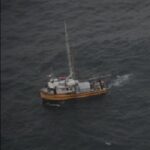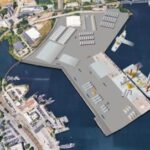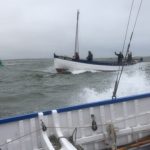Tag Archives: North Pacific Fishery Management Council
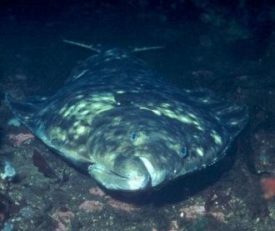
A tricky break for business fishermen: Pacific halibut catches more likely to drop subsequent 12 months
It‘s going to be a tough year for many Alaska fishermen. After announcements of a massive drop in cod stocks, the industry learned last week that Pacific halibut catches are likely to drop by 20 percent next year, and the declines could continue for several years. That could bring the coastwide catch for 2018, meaning from Oregon to British Columbia to the Bering Sea, to about 31 million pounds. Scientists at the International Pacific Halibut Commission interim meeting in Seattle revealed that survey results showed halibut numbers were down,,, click here to read the story 09:57
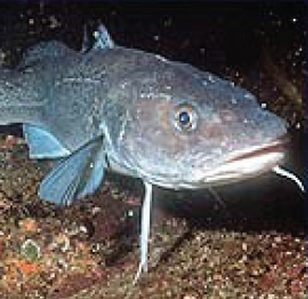
Bering Sea cod conflict brewing between on and offshore buyers
“Cod Alley” is getting crowded, and some fishermen want to limit the boats in the narrow congested fishing area in the Bering Sea. The North Pacific Fishery Management Council is looking at changes, including restricting flatfish factory trawlers from buying cod offshore. The Pacific Seafood Processors Association is pushing for restrictions on factory trawlers to protect its members’ shore plants in Unalaska, Akutan, King Cove and Sand Point. According to the PSPA’s Nicole Kimball, seven factory trawlers bought cod from 17 catcher boats in 2017,,, click here to read the story 21:23

Kodiak officials prepare for ‘disaster’: An 80 percent decline in Gulf cod catches in 2018
Kodiak officials already are drafting a disaster declaration due to the crash of cod stocks throughout the Gulf of Alaska. The shortage will hurt many other coastal communities as well. Gulf cod catches for 2018 will drop by 80 percent to just under 29 million pounds in federally managed waters, compared to a harvest this year of nearly 142 million pounds. The crash is expected to continue into 2020 or 2021. Cod catches in the Bering Sea also will decline by 15 percent to 414 million pounds. In all, Alaska produces 12 percent of global cod fish. click here to read the story 09:12
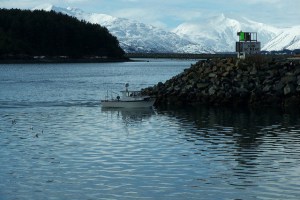
Fisheries Work Group reacts to cod decline and quota reduction
The Gulf of Alaska is seeing a Pacific cod decline just a year after a disastrous pink salmon season, and it has Kodiak representatives looking at the next steps for the community. The North Pacific Fishery Management Council recently decided to reduce the Gulf of Alaska cod quota by 80 percent to compensate for the almost 70 percent decline. The feeling around the table at the Kodiak Fisheries Work Group meeting Wednesday night was that this could be another fishery disaster, as with the pink season in 2016, which earned a federal disaster designation. click here to read the story 12:07
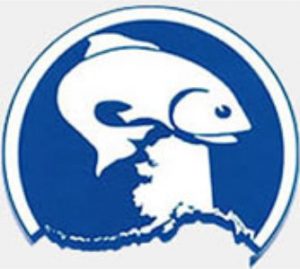
North Pacific Fishery Management Council meeting in Anchorage (in progress) December 4-12, 2017
The North Pacific Fishery Management Council will meet the week of December 4-12, 2017 at the Hilton Hotel, 500 W. 3rd Avenue, Anchorage, Alaska. The AGENDA and SCHEDULE are available. The Council meeting will be broadcast (starts today) click here to listen online 19:38
Supreme Court says no to hearing UCIDA case
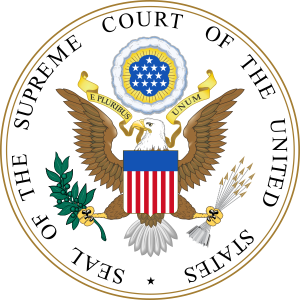 The lawsuit over whether the federal government or the state should manage Cook Inlet’s salmon fisheries won’t get its day in the U.S. Supreme Court after all. Supreme Court justices on Monday denied the state of Alaska’s petition to hear a case in which the Kenai Peninsula-based fishing trade group the United Cook Inlet Drift Association challenged the North Pacific Fishery Management Council’s decision to confer management of the salmon fishery to the state. click here to read the story 08:31
The lawsuit over whether the federal government or the state should manage Cook Inlet’s salmon fisheries won’t get its day in the U.S. Supreme Court after all. Supreme Court justices on Monday denied the state of Alaska’s petition to hear a case in which the Kenai Peninsula-based fishing trade group the United Cook Inlet Drift Association challenged the North Pacific Fishery Management Council’s decision to confer management of the salmon fishery to the state. click here to read the story 08:31
North Pacific Fishery Management Council meeting in Juneau, AK June 5 – 13, 2017
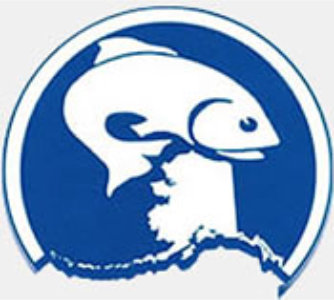 The North Pacific Fishery Management Council will meet the week of June 5, 2017 at the Centennial Hall Convention Center, 101 Egan Drive in Juneau, Alaska. The AGENDA and SCHEDULE are available. The Council meeting will be broadcast at https://npfmc.adobeconnect.com/june2017 12:46
The North Pacific Fishery Management Council will meet the week of June 5, 2017 at the Centennial Hall Convention Center, 101 Egan Drive in Juneau, Alaska. The AGENDA and SCHEDULE are available. The Council meeting will be broadcast at https://npfmc.adobeconnect.com/june2017 12:46
The Washington fishing-industry battle over a federal council seat escalates
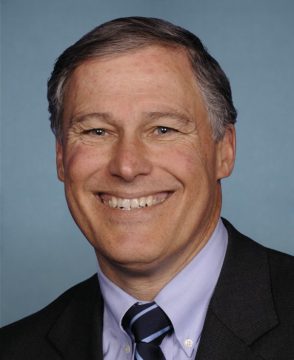 The Washington fishing-industry battle over a seat on the North Pacific Fishery Management Council has escalated as four industry groups sent a Thursday letter to Secretary of Commerce Wilbur Ross in support of Gov. Jay Inslee and his slate of three nominees. Leaders of the Freezer Longliner Coaltion, Alaska Bering Sea Crabbers, Deep Sea Fishermen’s Union and Fishing Vessel Owners Assocation all signed the letter. They sought to rebut an April 3 letter that President Donald Trump’s commerce secretary received from four other Washington industry groups that asked Ross to reject Inslee’s nominees because of what they said was a flawed nomination process. “We wish to register our strong disagreement with the April 3 letter,” they wrote. click here to read the story 20:11
The Washington fishing-industry battle over a seat on the North Pacific Fishery Management Council has escalated as four industry groups sent a Thursday letter to Secretary of Commerce Wilbur Ross in support of Gov. Jay Inslee and his slate of three nominees. Leaders of the Freezer Longliner Coaltion, Alaska Bering Sea Crabbers, Deep Sea Fishermen’s Union and Fishing Vessel Owners Assocation all signed the letter. They sought to rebut an April 3 letter that President Donald Trump’s commerce secretary received from four other Washington industry groups that asked Ross to reject Inslee’s nominees because of what they said was a flawed nomination process. “We wish to register our strong disagreement with the April 3 letter,” they wrote. click here to read the story 20:11
North Pacific council takes first step in creating salmon fishery management plan
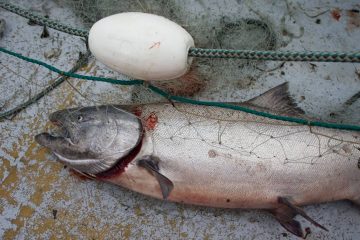 A lot of new faces are coming to the table at the North Pacific Fishery Management Council, and not a lot of them are happy about it. Fishermen who had never previously been involved with the council now have to show up to have a hand in how their fisheries will be incorporated into a federal fishery management plan. The council, which regulates federal fisheries off the coast of Alaska, on Thursday started in on the topic of the salmon plan for Cook Inlet, part of the Alaska Peninsula and part of Prince William Sound near Cordova. After removing the three areas from the plan by amendment in 2011, effectively exempting them from federal oversight and delegating entirely to the state despite occurring partially in federal waters, the U.S. Ninth Circuit Court ruled that the move was illegal. Now, the council is having to initiate the process of revising the salmon FMP to include the net areas, which is likely to take years. click to continue reading the article here 12:12
A lot of new faces are coming to the table at the North Pacific Fishery Management Council, and not a lot of them are happy about it. Fishermen who had never previously been involved with the council now have to show up to have a hand in how their fisheries will be incorporated into a federal fishery management plan. The council, which regulates federal fisheries off the coast of Alaska, on Thursday started in on the topic of the salmon plan for Cook Inlet, part of the Alaska Peninsula and part of Prince William Sound near Cordova. After removing the three areas from the plan by amendment in 2011, effectively exempting them from federal oversight and delegating entirely to the state despite occurring partially in federal waters, the U.S. Ninth Circuit Court ruled that the move was illegal. Now, the council is having to initiate the process of revising the salmon FMP to include the net areas, which is likely to take years. click to continue reading the article here 12:12
Fishing-industry groups blast Inslee over his picks for federal council
 Gov. Jay Inslee’s handling of nominations for a federal fishery-council seat has come under attack from the leaders of major North Pacific fishing-industry groups, which have taken the unusual step of sending a complaint letter to the U.S. Secretary of Commerce.,, In their letter sent Tuesday, they asked Commerce Secretary Wilbur Ross to reject Inslee’s nominations and called for the governor to come up with some new names for a seat on the council. The industry backlash reflects the high stakes in fish politics, where the federal fishery council helps sets the rules for a billion-dollar groundfish harvest, much of which is caught and processed by Seattle-based companies. The letter is signed by the leaders of the Pacific Seafood Processors Association, At-Sea Processors Association, Groundfish Forum, and United Catcher Boats, whose membership collectively catches or processes most the groundfish. Read the article, click here 10:05
Gov. Jay Inslee’s handling of nominations for a federal fishery-council seat has come under attack from the leaders of major North Pacific fishing-industry groups, which have taken the unusual step of sending a complaint letter to the U.S. Secretary of Commerce.,, In their letter sent Tuesday, they asked Commerce Secretary Wilbur Ross to reject Inslee’s nominations and called for the governor to come up with some new names for a seat on the council. The industry backlash reflects the high stakes in fish politics, where the federal fishery council helps sets the rules for a billion-dollar groundfish harvest, much of which is caught and processed by Seattle-based companies. The letter is signed by the leaders of the Pacific Seafood Processors Association, At-Sea Processors Association, Groundfish Forum, and United Catcher Boats, whose membership collectively catches or processes most the groundfish. Read the article, click here 10:05
NPFMC Shares Future of Electronic Monitoring Program with Fishermen
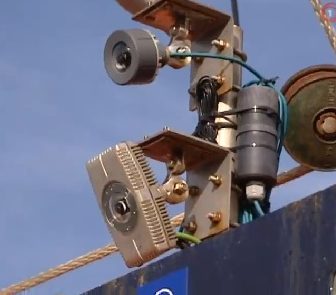 The North Pacific Fishery Management Council is trying to figure out the best way to use video and camera technology for catch monitoring, and it’s on the brink of transitioning into a regulated program. Members of the council spoke at ComFish last week and elaborated on its efforts. Bill Tweit, council vice chair, explained they’ve been working on the partial coverage fleet – the vessels that get observer coverage only some of the time. “Again I think a lot of you are aware that when we restructured the observer program, we extended the size range of boats that are likely to be covered for catch monitoring purposes by an observer, and that’s definitely created some issues around how you fit a human observer onto a fairly small fishing boat, and we knew at the time that it was probably going to be a little problematic, so we’ve trying hard to provide electronic monitoring as an alternative to that.” continue reading the story here 16:59
The North Pacific Fishery Management Council is trying to figure out the best way to use video and camera technology for catch monitoring, and it’s on the brink of transitioning into a regulated program. Members of the council spoke at ComFish last week and elaborated on its efforts. Bill Tweit, council vice chair, explained they’ve been working on the partial coverage fleet – the vessels that get observer coverage only some of the time. “Again I think a lot of you are aware that when we restructured the observer program, we extended the size range of boats that are likely to be covered for catch monitoring purposes by an observer, and that’s definitely created some issues around how you fit a human observer onto a fairly small fishing boat, and we knew at the time that it was probably going to be a little problematic, so we’ve trying hard to provide electronic monitoring as an alternative to that.” continue reading the story here 16:59
North Pacific Fishery Management Council forced back into Cook Inlet salmon fray
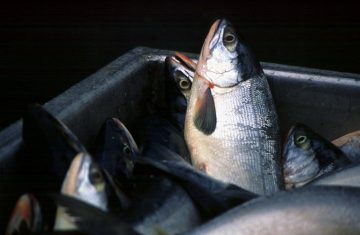 The North Pacific Fishery Management Council will open up a process next week that will likely take years to redesign the Cook Inlet salmon fishery management plan. A federal appeals court decided last fall that the council, which oversees all federal fisheries management in the North Pacific between 3 and 200 nautical miles offshore — known as the United States Exclusive Economic Zone — has to craft a management plan for the salmon fishery. The council decided in 2011 to hand over several of Alaska’s salmon fisheries to state managers by removing them from the existing fishery management plan, and though an Alaska U.S. District judge ruled that it was legal in 2014, a three-judge panel of the 9th Circuit Court of Appeals unanimously reversed the decision this past September. The North Pacific Fishery Management Council is tentatively scheduled to hear the first discussion paper prepared by the National Marine Fisheries Service on what the plan could look like and how they should proceed during the council’s meeting April 6 in Anchorage. How did we get here? continue reading the story here 12:01
The North Pacific Fishery Management Council will open up a process next week that will likely take years to redesign the Cook Inlet salmon fishery management plan. A federal appeals court decided last fall that the council, which oversees all federal fisheries management in the North Pacific between 3 and 200 nautical miles offshore — known as the United States Exclusive Economic Zone — has to craft a management plan for the salmon fishery. The council decided in 2011 to hand over several of Alaska’s salmon fisheries to state managers by removing them from the existing fishery management plan, and though an Alaska U.S. District judge ruled that it was legal in 2014, a three-judge panel of the 9th Circuit Court of Appeals unanimously reversed the decision this past September. The North Pacific Fishery Management Council is tentatively scheduled to hear the first discussion paper prepared by the National Marine Fisheries Service on what the plan could look like and how they should proceed during the council’s meeting April 6 in Anchorage. How did we get here? continue reading the story here 12:01
North Pacific Fishery Management Council gets review of Bering Sea pollock program
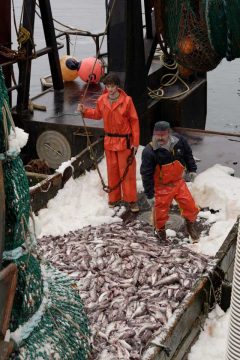 After two years of almost ceaseless contention, the North Pacific regulatory waters have cooled down for now. The Council oversees all federal fisheries between three and 200 miles off the Alaska coast. One of eight regions, the North Pacific fishery is by far the country’s most profitable, having produced two-thirds of the country’s total seafood value in 2015. Over the last two years, the council has been in battle mode over chinook salmon and halibut bycatch, and Gulf of Alaska groundfish catch shares. There have been parades of protest and industry stand-downs and rural Alaska villages emptied to give impassioned pleas alongside Seattle fishing crews and captains. At the council’s Seattle meeting Feb. 1-6, the council rested for the most part, taking scant public comment and few final actions. Rather, it focused on some of the structures behind the chaos, reviewing catch share programs and looking for areas to tune up following two years of pushing the gas. After indefinitely tabling a Gulf of Alaska catch share system four years in the works at its meeting this past December, the council reviewed the schematics behind the Bering Sea pollock fishery, Alaska’s largest fishery by volume. Read the rest of the article here 20:36
After two years of almost ceaseless contention, the North Pacific regulatory waters have cooled down for now. The Council oversees all federal fisheries between three and 200 miles off the Alaska coast. One of eight regions, the North Pacific fishery is by far the country’s most profitable, having produced two-thirds of the country’s total seafood value in 2015. Over the last two years, the council has been in battle mode over chinook salmon and halibut bycatch, and Gulf of Alaska groundfish catch shares. There have been parades of protest and industry stand-downs and rural Alaska villages emptied to give impassioned pleas alongside Seattle fishing crews and captains. At the council’s Seattle meeting Feb. 1-6, the council rested for the most part, taking scant public comment and few final actions. Rather, it focused on some of the structures behind the chaos, reviewing catch share programs and looking for areas to tune up following two years of pushing the gas. After indefinitely tabling a Gulf of Alaska catch share system four years in the works at its meeting this past December, the council reviewed the schematics behind the Bering Sea pollock fishery, Alaska’s largest fishery by volume. Read the rest of the article here 20:36
The North Pacific Fishery Management Council Meeting in Seattle, WA January 30 thru February 6, 2017
 The North Pacific Fishery Management Council will begin their meeting week on Monday, January 30, and continue through Monday February 6, 2017 at the Renaissance Seattle Hotel, 515 Madison Street, Seattle, WA. The AGENDA and SCHEDULE are now available. Meeting FAST FACTS. The Council’s meeting will be broadcast live beginning February 1, 2017 via Adobe Connect Listen Online. Visit the NPFMC Website, Click here 20:35
The North Pacific Fishery Management Council will begin their meeting week on Monday, January 30, and continue through Monday February 6, 2017 at the Renaissance Seattle Hotel, 515 Madison Street, Seattle, WA. The AGENDA and SCHEDULE are now available. Meeting FAST FACTS. The Council’s meeting will be broadcast live beginning February 1, 2017 via Adobe Connect Listen Online. Visit the NPFMC Website, Click here 20:35
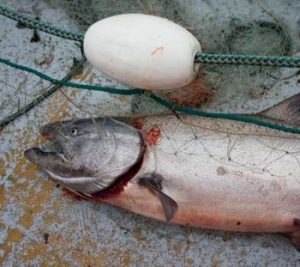
Victorious United Cook Inlet Drift Association file to vacate salmon rule
A Cook Inlet salmon plan will take a lot more work from federal managers in the next few years. The United Cook Inlet Drift Association, an industry group of salmon drift netters, has requested the U.S. District Court of Alaska to vacate a piece of fisheries policy they successfully sued to overturn after an appeal court ruling this past September.In the meantime, the old plan replacing the vacated plan will require some work. “Given the dire situation faced by UCIDA as a result of the federal government’s utter abdication of its (Magnuson-Stevens Act) responsibilities in this important fishery, the Proposed Judgment sought by UCIDA is immediately necessary,” according to the motion filed by UCIDA on Jan. 7. “It would ensure that the checks and balances guaranteed by the Act — including the requirement to use the best available science, to manage the fishery in accordance with the 10 national standards, and to achieve optimum yield — are provided to UCIDA and the fishery in the short term while NMFS works with the council to produce a new FMP.” A three judge panel of the U.S. 9th Circuit Court of Appeals sided with commercial fishing groups against a 2011 decision by the North Pacific Fishery Management Council to remove several Alaska salmon fisheries from the FMP. Read the article here 08:03
Opinion: State, council fail to help Kodiak trawl fisheries
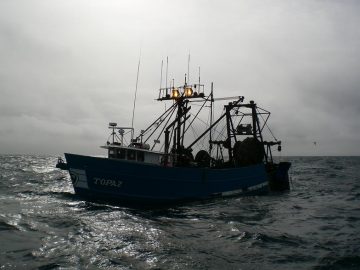 The North Pacific Fishery Management Council has a record for successful fishery management, built on principles known as the Alaska Model. Recently, the council abandoned the Alaska Model and its solid reputation for progressive fishery management. In doing so, the council failed the Gulf of Alaska trawl groundfish fisheries and our community of Kodiak. Led by the state of Alaska, the council voted at its December meeting in Anchorage to “postpone indefinitely” any further work to address the goal of bycatch reduction through a cooperative management program for Gulf of Alaska trawl fisheries. Instead, the Council ended a four-year public process to develop a program to achieve this goal. By their action, the state and the council put politics first, and the health of our fisheries and coastal communities came in dead last. Read the op-ed here 17:46
The North Pacific Fishery Management Council has a record for successful fishery management, built on principles known as the Alaska Model. Recently, the council abandoned the Alaska Model and its solid reputation for progressive fishery management. In doing so, the council failed the Gulf of Alaska trawl groundfish fisheries and our community of Kodiak. Led by the state of Alaska, the council voted at its December meeting in Anchorage to “postpone indefinitely” any further work to address the goal of bycatch reduction through a cooperative management program for Gulf of Alaska trawl fisheries. Instead, the Council ended a four-year public process to develop a program to achieve this goal. By their action, the state and the council put politics first, and the health of our fisheries and coastal communities came in dead last. Read the op-ed here 17:46
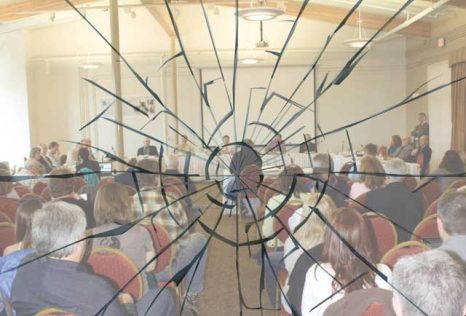
Wow! Council cracks up over catch shares
Everyone in the Gulf of Alaska agrees on one thing: it was the other side’s fault. Depending on who you ask, catch shares are evil incarnate or an angel of good management. Depending on who you ask, they’ll either save Kodiak or kill it. Depending on who you ask, it’s either the State of Alaska’s fault or its credit for not allowing catch shares in the Gulf of Alaska’s groundfish fishery. And depending on who you ask, they’ll either come up again or get sliced up into a handful of other little nibbles at the Gulf of Alaska bycatch problems. Either sighs of relief or defeat leaked from every mouth in the room on this past Dec. 12 when the North Pacific Fishery Management Council, which oversees all federal fisheries from three to 200 miles off the Alaska coast, indefinitely tabled a complex range of options for the Gulf of Alaska groundfish fisheries. Read the story here! 21:17
No Catch Shares! Gulf rationalization dies a quiet death
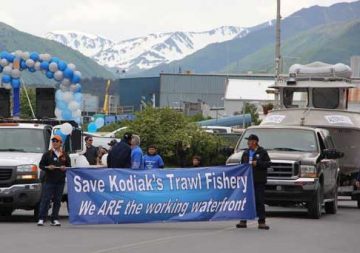 Gulf of Alaska groundfish will remain an open access fishery indefinitely after the North Pacific Fishery Management Council tabled a policy package that has enraged fishermen of all stripes over the last year. Depending on who is asked, the council acted at either its best or its worst with the decision. “The council process didn’t work. They didn’t solve the problem,” said Julie Bonney, executive director of the Groundfish Forum, an industry group of trawlers and processors. “They just took the political part first and ignored the management. I have to keep reminding myself, this isn’t about management. It’s about politics.” Others said the council did exactly what it should have done in the face of so many contentious decisions on which so many people expressed opinions. “I think this is actually the best illustration of council process, rather than the worst,” said Duncan Fields, a Kodiak attorney and former council member who was among the most vocal on this subject. “It shows that one gear group with a particular ideology and particular economic interest with very good advocates can’t just jam something through the council,” he said. “The council allows other participants, small boat fishermen, community, stakeholders to also have a voice, and that voice has said a catch share program is not the best public policy. You don’t always get the result you want.” Read the rest here 20:39
Gulf of Alaska groundfish will remain an open access fishery indefinitely after the North Pacific Fishery Management Council tabled a policy package that has enraged fishermen of all stripes over the last year. Depending on who is asked, the council acted at either its best or its worst with the decision. “The council process didn’t work. They didn’t solve the problem,” said Julie Bonney, executive director of the Groundfish Forum, an industry group of trawlers and processors. “They just took the political part first and ignored the management. I have to keep reminding myself, this isn’t about management. It’s about politics.” Others said the council did exactly what it should have done in the face of so many contentious decisions on which so many people expressed opinions. “I think this is actually the best illustration of council process, rather than the worst,” said Duncan Fields, a Kodiak attorney and former council member who was among the most vocal on this subject. “It shows that one gear group with a particular ideology and particular economic interest with very good advocates can’t just jam something through the council,” he said. “The council allows other participants, small boat fishermen, community, stakeholders to also have a voice, and that voice has said a catch share program is not the best public policy. You don’t always get the result you want.” Read the rest here 20:39
Federal judge tosses another fisheries management rule
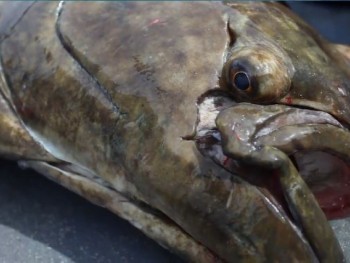 Federal judges keep smacking down the North Pacific Fishery Management Council’s decisions. For the second time in the last three months, a federal court has overturned a management decision made by the North Pacific council and enacted by the National Marine Fisheries Service, or NMFS. The United States District Court of Washington overturned a 2011 decision relating to halibut quota shares harvested by hired skippers on Nov. 16. Federal courts have overturned several council decisions in recent years. In September, a the 9th Circuit Court of Appeals overturned the council’s 2011 decision to remove Cook Inlet, Prince William Sound and Alaska Peninsula salmon fisheries from federal oversight. In this case, the North Pacific council made a decision in 2011 regarding which halibut quota holders can use a hired skipper instead of being required to be on board the vessel. Read the story here 14:09
Federal judges keep smacking down the North Pacific Fishery Management Council’s decisions. For the second time in the last three months, a federal court has overturned a management decision made by the North Pacific council and enacted by the National Marine Fisheries Service, or NMFS. The United States District Court of Washington overturned a 2011 decision relating to halibut quota shares harvested by hired skippers on Nov. 16. Federal courts have overturned several council decisions in recent years. In September, a the 9th Circuit Court of Appeals overturned the council’s 2011 decision to remove Cook Inlet, Prince William Sound and Alaska Peninsula salmon fisheries from federal oversight. In this case, the North Pacific council made a decision in 2011 regarding which halibut quota holders can use a hired skipper instead of being required to be on board the vessel. Read the story here 14:09
The North Pacific Fishery Management Council is meeting in Anchorage December 6 thru 14, 2016
 The North Pacific Fishery Management Council will begin their meeting week on Tuesday, December 6, and continue through Tuesday December 14, 2016 at the Hilton Hotel, 500 W. 3rd Avenue, Anchorage, AK 99501. The AGENDA and SCHEDULE are now available. The Council’s meeting will be broadcast live beginning their first day via Adobe Connect Listen Online 09:16
The North Pacific Fishery Management Council will begin their meeting week on Tuesday, December 6, and continue through Tuesday December 14, 2016 at the Hilton Hotel, 500 W. 3rd Avenue, Anchorage, AK 99501. The AGENDA and SCHEDULE are now available. The Council’s meeting will be broadcast live beginning their first day via Adobe Connect Listen Online 09:16
Following court decision Cook Inlet fishermen wait for direction
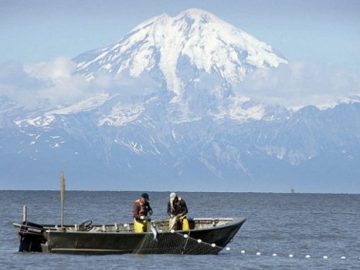 Concerned fishermen gathered at the North Pacific Fishery Management Council’s October meeting in Anchorage to discuss a recent federal court decision that turns control of salmon fisheries in Cook Inlet, Prince William Sound and the Alaska Peninsula over to state management. Though stakeholders brought their suggestions, the council did not direct its staff to any action related to the subject of a salmon FMP. Instead, the council reiterated that the decision will be remanded back to the lower court where it could either be appealed or produce a directive for the council to write a salmon FMP. The North Pacific Fishery Management Council governs federal fisheries, which take place from three to 200 miles offshore. In 2013, industry group United Cook Inlet Drift Association, or UCIDA, filed a lawsuit to repeal a 2011 council decision, which became Amendment 12 to the Alaska salmon fishery management plan, or FMP. The initial suit was rejected by U.S. Alaska District Court Judge Timothy Burgess in September 2014. A three-judge panel of the 9th Circuit unanimously remanded the case back to Burgess with instructions to find in favor the plaintiffs. Read the story here 11:48
Concerned fishermen gathered at the North Pacific Fishery Management Council’s October meeting in Anchorage to discuss a recent federal court decision that turns control of salmon fisheries in Cook Inlet, Prince William Sound and the Alaska Peninsula over to state management. Though stakeholders brought their suggestions, the council did not direct its staff to any action related to the subject of a salmon FMP. Instead, the council reiterated that the decision will be remanded back to the lower court where it could either be appealed or produce a directive for the council to write a salmon FMP. The North Pacific Fishery Management Council governs federal fisheries, which take place from three to 200 miles offshore. In 2013, industry group United Cook Inlet Drift Association, or UCIDA, filed a lawsuit to repeal a 2011 council decision, which became Amendment 12 to the Alaska salmon fishery management plan, or FMP. The initial suit was rejected by U.S. Alaska District Court Judge Timothy Burgess in September 2014. A three-judge panel of the 9th Circuit unanimously remanded the case back to Burgess with instructions to find in favor the plaintiffs. Read the story here 11:48
NPFMC progresses with halibut issues
 Federal fisheries managers took additional steps at their October meeting on halibut issues ranging from leasing of individual fishery shares to prohibited species catch limits, and a review of the halibut/sablefish IFQ program. None of these issues, which were in the early stage of consideration, are on draft agendas for upcoming council meetings Dec. 6-14 in Anchorage or Jan. 30-Feb. 7 in Seattle, although final action on two other halibut issues is anticipated in December. They are charter halibut management measures and the charter halibut recreational quota entry program. On the matter of IFQ leasing of quota shares, which was up for an initial review, the council expanded its suite of options for proposed action to allow leasing of halibut IFQ to community development quota groups in low abundance years. Read the rest here 14:36
Federal fisheries managers took additional steps at their October meeting on halibut issues ranging from leasing of individual fishery shares to prohibited species catch limits, and a review of the halibut/sablefish IFQ program. None of these issues, which were in the early stage of consideration, are on draft agendas for upcoming council meetings Dec. 6-14 in Anchorage or Jan. 30-Feb. 7 in Seattle, although final action on two other halibut issues is anticipated in December. They are charter halibut management measures and the charter halibut recreational quota entry program. On the matter of IFQ leasing of quota shares, which was up for an initial review, the council expanded its suite of options for proposed action to allow leasing of halibut IFQ to community development quota groups in low abundance years. Read the rest here 14:36
Head of UCIDA hopes for fisheries plan based on 10 MSA national standards
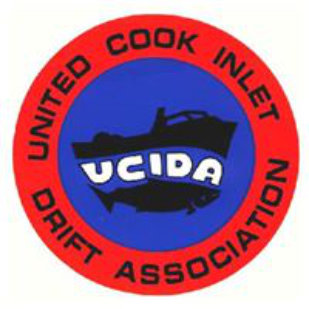 After the well-publicized court win by commercial fishing groups requiring the North Pacific Fishery Management Council to work with the state to establish a Fisheries Management Plan for salmon fisheries that take place largely in federal waters complying with the Magnuson-Stevens Act, the question is, now what? That will be a topic of discussion at the council meeting taking place this week. In the meantime, David Martin, president of United Cook Inlet Drift Association, one of the groups that filed and funded the suit, commented on what some of the issues are, and the thinking behind the suit. While the suit is still open to the appeals process, after having won a unanimous decision from the Ninth Circuit, the state has expressed reluctance to appeal. Read the story here 15:11
After the well-publicized court win by commercial fishing groups requiring the North Pacific Fishery Management Council to work with the state to establish a Fisheries Management Plan for salmon fisheries that take place largely in federal waters complying with the Magnuson-Stevens Act, the question is, now what? That will be a topic of discussion at the council meeting taking place this week. In the meantime, David Martin, president of United Cook Inlet Drift Association, one of the groups that filed and funded the suit, commented on what some of the issues are, and the thinking behind the suit. While the suit is still open to the appeals process, after having won a unanimous decision from the Ninth Circuit, the state has expressed reluctance to appeal. Read the story here 15:11
The North Pacific Fishery Management Council is meeting in Anchorage October 3rd – 11th, 2016
 The North Pacific Fishery Management Council will meet the week of October 3, 2016 at the Hilton Hotel, 500 W. 3rd Avenue, Anchorage, AK 99501. The AGENDA and SCHEDULE are now available. The Council’s meeting will be broadcast live beginning their first day via Adobe Connect Listen Online. 13:57
The North Pacific Fishery Management Council will meet the week of October 3, 2016 at the Hilton Hotel, 500 W. 3rd Avenue, Anchorage, AK 99501. The AGENDA and SCHEDULE are now available. The Council’s meeting will be broadcast live beginning their first day via Adobe Connect Listen Online. 13:57
It’s time to talk crab season projections – NPFMC to meet to approve catch limits, discuss management plan
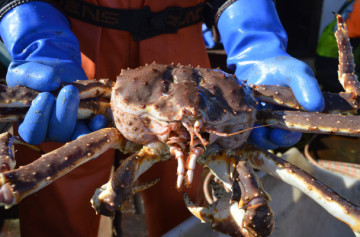 The North Pacific Fishery Management Council will meet in Anchorage from Oct. 5-11 to overview crab season projections, hear further discussions of halibut management, and decide what to do about a recent federal appeals court decision that will require more attention to salmon management. The council will approve catch limits for the 2016-17 crab fisheries and review the stock assessment for the last year. Stocks for both snow crab and Bairdi Tanner crab were down according to surveys in 2016, and stakeholders are holding their breath to see if the Alaska Department of Fish and Game will need to close fisheries if abundance doesn’t meet the department thresholds. The crab fishing management plan, or FMP, requires federal scientists to set an overfishing limit, or OFL, and an acceptable biological catch, or ABC. Based on these numbers, the Alaska Department of Fish and Game will determine a total allowable catch, or TAC, under its joint management with the council. Read the story here 14:13
The North Pacific Fishery Management Council will meet in Anchorage from Oct. 5-11 to overview crab season projections, hear further discussions of halibut management, and decide what to do about a recent federal appeals court decision that will require more attention to salmon management. The council will approve catch limits for the 2016-17 crab fisheries and review the stock assessment for the last year. Stocks for both snow crab and Bairdi Tanner crab were down according to surveys in 2016, and stakeholders are holding their breath to see if the Alaska Department of Fish and Game will need to close fisheries if abundance doesn’t meet the department thresholds. The crab fishing management plan, or FMP, requires federal scientists to set an overfishing limit, or OFL, and an acceptable biological catch, or ABC. Based on these numbers, the Alaska Department of Fish and Game will determine a total allowable catch, or TAC, under its joint management with the council. Read the story here 14:13
Ninth Circuit Sides With Cook Inlet Fishermen
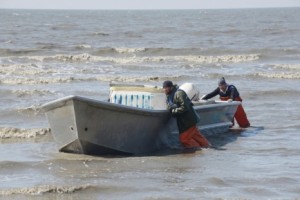 The Ninth Circuit ruled Wednesday that the federal government must manage fisheries in federal waters that require conservation, unless a fishery-management plan cedes control to a state. Reversing a decision from the Alaska Federal Court, the Ninth Circuit panel held that the National Marine Fisheries Service is required by the Magnuson-Stevens Fishery Conservation and Management Act to include the Cook Inlet in its fishery-management plan. It may not hand over control of the inlet to the state of Alaska without first drawing up a plan, according to the 20-page ruling. The North Pacific Fishery Management Council has jurisdiction over Cook Inlet. In 2011, the Council voted and passed Amendment 12 to remove the net-fishing areas from its plan, arguing that the plan was vague on management goals and that the state was the most appropriate management authority. However, the amendment was opposed by the United Cook Inlet Drift Association and the Cook Inlet Fishermen’s Fund, two groups of commercial fishermen. However, the amendment was opposed by the United Cook Inlet Drift Association and the Cook Inlet Fishermen’s Fund, two groups of commercial fishermen. They argued that the state’s failure to deal with carnivorous northern pike and its improper escapement management have contributed to a 51 percent reduction in the sockeye salmon catch since 1981. Read the story here 08:14
The Ninth Circuit ruled Wednesday that the federal government must manage fisheries in federal waters that require conservation, unless a fishery-management plan cedes control to a state. Reversing a decision from the Alaska Federal Court, the Ninth Circuit panel held that the National Marine Fisheries Service is required by the Magnuson-Stevens Fishery Conservation and Management Act to include the Cook Inlet in its fishery-management plan. It may not hand over control of the inlet to the state of Alaska without first drawing up a plan, according to the 20-page ruling. The North Pacific Fishery Management Council has jurisdiction over Cook Inlet. In 2011, the Council voted and passed Amendment 12 to remove the net-fishing areas from its plan, arguing that the plan was vague on management goals and that the state was the most appropriate management authority. However, the amendment was opposed by the United Cook Inlet Drift Association and the Cook Inlet Fishermen’s Fund, two groups of commercial fishermen. However, the amendment was opposed by the United Cook Inlet Drift Association and the Cook Inlet Fishermen’s Fund, two groups of commercial fishermen. They argued that the state’s failure to deal with carnivorous northern pike and its improper escapement management have contributed to a 51 percent reduction in the sockeye salmon catch since 1981. Read the story here 08:14
Alaska IPHC board member fined $49K for fishing violation, resigns
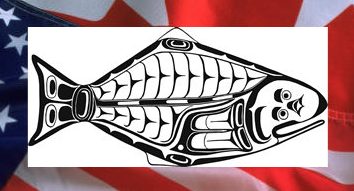 Jeff Kauffman resigned as the Alaska resident member of the International Pacific Halibut Commission on June 22, shortly after he and two fellow fishermen agreed to a $49,000 fine for harvesting more than 10,000 pounds of halibut over their combined quota limit in June 2012. The settlement the National Oceanic and Atmospheric Administration Office of Law Enforcement agreed to was nearly $13,000 less than the original Notice of Violation and Assessment of $61,781 issued on March 1 of this year. Kauffman, who is the vice president of the Central Bering Sea Fisherman’s Association, or CBSFA, and a member of the Advisory Panel to the North Pacific Fishery Management Council, did not respond to a request for comment. Interesting article that should raise some questions regarding conflicting relationships. Read the story here 08:40
Jeff Kauffman resigned as the Alaska resident member of the International Pacific Halibut Commission on June 22, shortly after he and two fellow fishermen agreed to a $49,000 fine for harvesting more than 10,000 pounds of halibut over their combined quota limit in June 2012. The settlement the National Oceanic and Atmospheric Administration Office of Law Enforcement agreed to was nearly $13,000 less than the original Notice of Violation and Assessment of $61,781 issued on March 1 of this year. Kauffman, who is the vice president of the Central Bering Sea Fisherman’s Association, or CBSFA, and a member of the Advisory Panel to the North Pacific Fishery Management Council, did not respond to a request for comment. Interesting article that should raise some questions regarding conflicting relationships. Read the story here 08:40
Many words created few changes to the Gulf of Alaska bycatch reduction package the North Pacific Fishery Management Council is pondering.
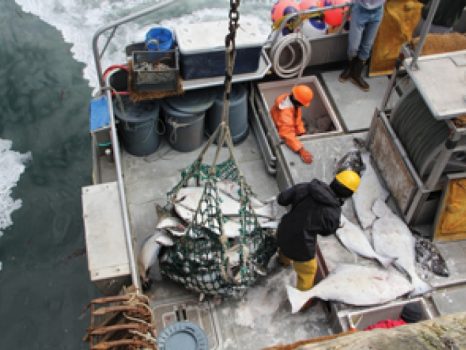 At its June meeting in Kodiak, the council held another session dedicated to the plan, which would enact one of several options aimed at reducing the amount of halibut and chinook salmon bycatch in the Gulf of Alaska groundfish fishery. The council moved three alternatives into a public scoping process but before making adjustments to alternatives, the overarching goals and objectives debate spurred a two-hour word battle among members that the chair found unproductive. Not only should the plan reduce bycatch, as the purpose and needs statement says, but should also “promote increased utilization of both target and secondary species while minimizing economic barriers for new participants and limiting harvest privileges.” The council lingo is meant to protect new entrant fishermen from consolidation and overwhelming entry costs to purchase fishing quota. (This is a long article with lots of info.) Read the story here 20:44
At its June meeting in Kodiak, the council held another session dedicated to the plan, which would enact one of several options aimed at reducing the amount of halibut and chinook salmon bycatch in the Gulf of Alaska groundfish fishery. The council moved three alternatives into a public scoping process but before making adjustments to alternatives, the overarching goals and objectives debate spurred a two-hour word battle among members that the chair found unproductive. Not only should the plan reduce bycatch, as the purpose and needs statement says, but should also “promote increased utilization of both target and secondary species while minimizing economic barriers for new participants and limiting harvest privileges.” The council lingo is meant to protect new entrant fishermen from consolidation and overwhelming entry costs to purchase fishing quota. (This is a long article with lots of info.) Read the story here 20:44
Catch Shares: After 10-year crab review, NPFMC seeks social impact information. Are they blind?
 The North Pacific Fishery Management Council approved a 10-year review of rationalization on June 10, the program that ended derby-style crab fisheries in 2005 and gave quota shares to vessel owners, captains and processors. The aim was to reduce overcapitalization and create a safer fishery by allowing crew to fish slower with a guaranteed quota allocation compared to the previous free-for-all. The study – The 10-year review charted a continuation of trends found in the five-year review. Vessel consolidation continued along with quota consolidation, but both somewhat stabilized in the last five years. Fewer people hold quota than before. Each individual quota holder, naturally, holds more quota now than in 2004; 53 fewer people hold Bristol Bay red king crab crew shares now than in 2005. In the two years following rationalization, the crab fleet shrank from 256 vessels in 2004 to 91 in 2006. Read the rest here 12:49
The North Pacific Fishery Management Council approved a 10-year review of rationalization on June 10, the program that ended derby-style crab fisheries in 2005 and gave quota shares to vessel owners, captains and processors. The aim was to reduce overcapitalization and create a safer fishery by allowing crew to fish slower with a guaranteed quota allocation compared to the previous free-for-all. The study – The 10-year review charted a continuation of trends found in the five-year review. Vessel consolidation continued along with quota consolidation, but both somewhat stabilized in the last five years. Fewer people hold quota than before. Each individual quota holder, naturally, holds more quota now than in 2004; 53 fewer people hold Bristol Bay red king crab crew shares now than in 2005. In the two years following rationalization, the crab fleet shrank from 256 vessels in 2004 to 91 in 2006. Read the rest here 12:49






